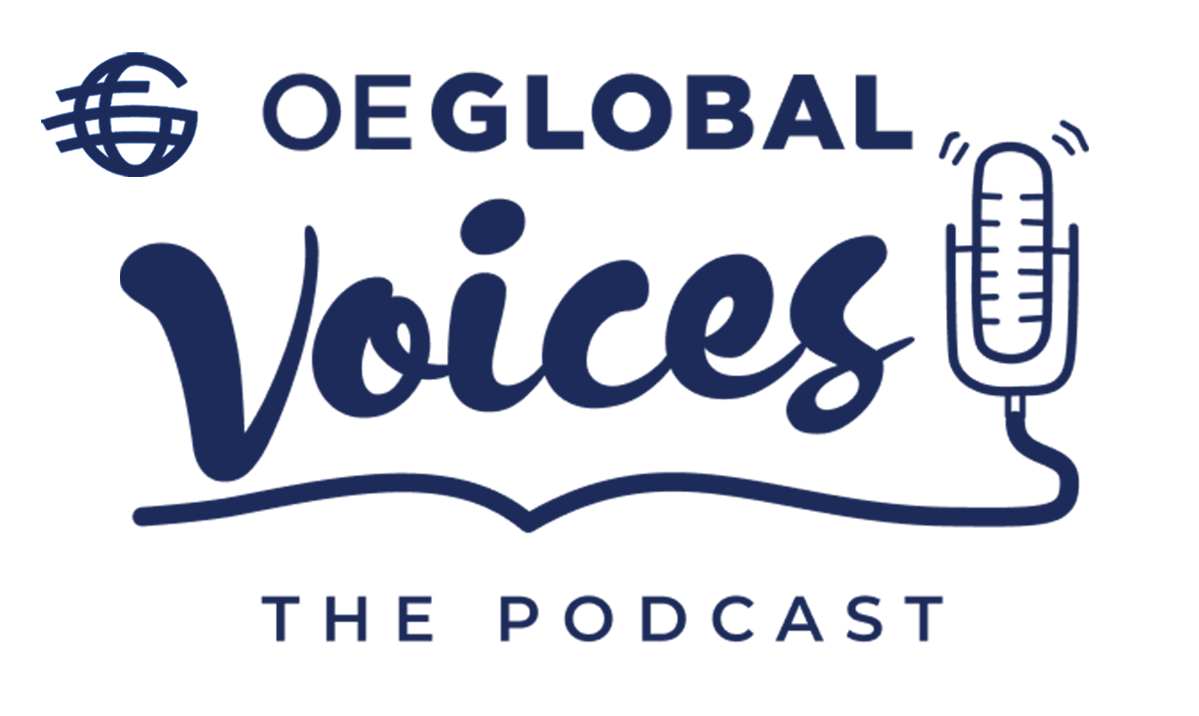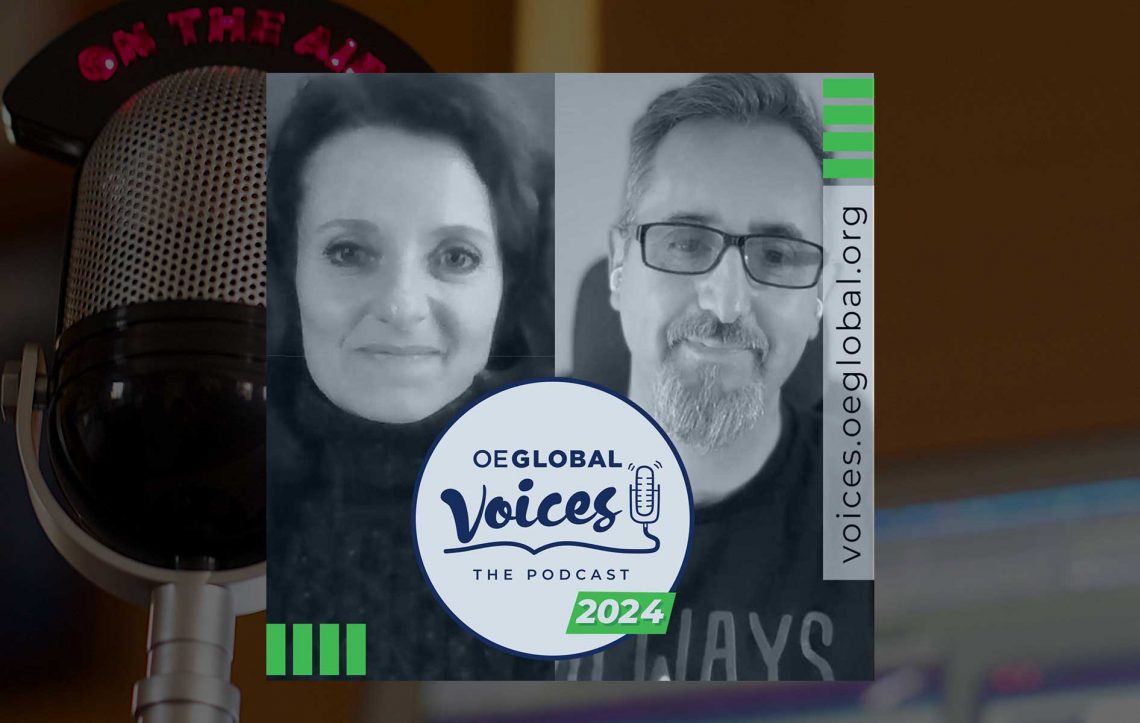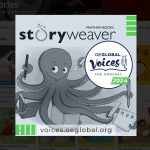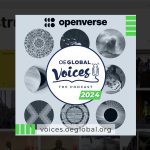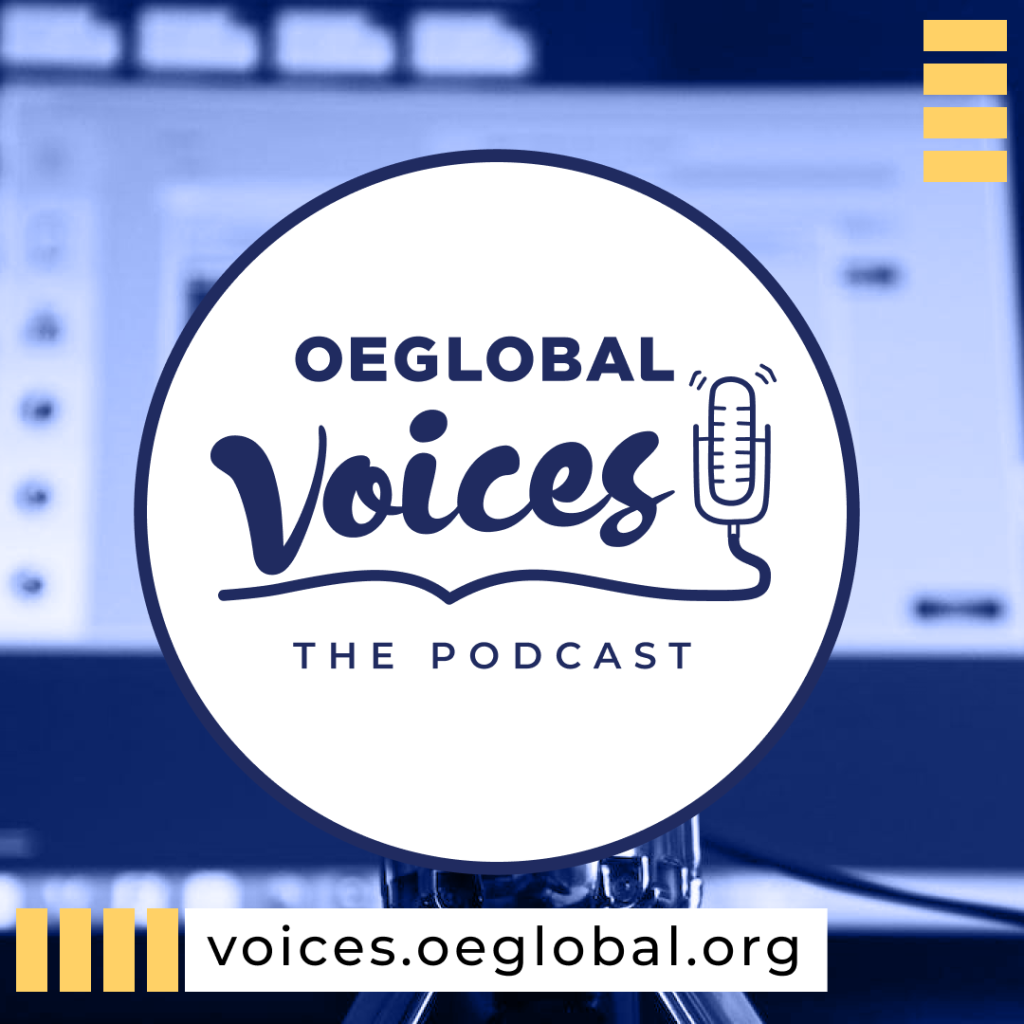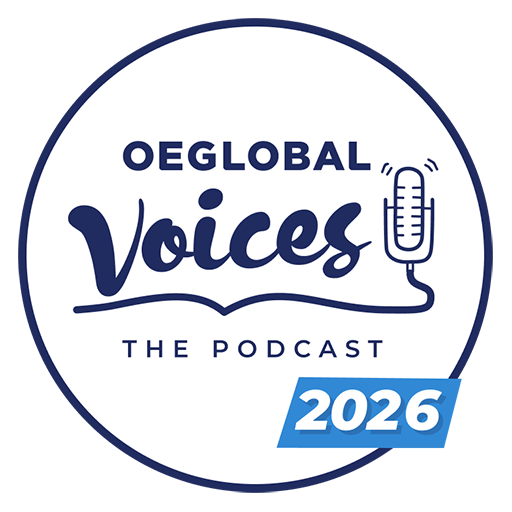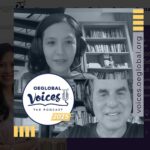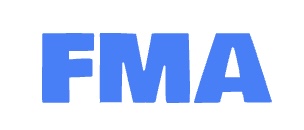As the next show of the Board Viewpoints series, we bring you conversations with and insights from two OE Global Board Members, which we are publishing every other month. In episode 64, we traveled via video conversations to Perth, Australia, to talk to Martin Dougiamas and then hopped over to Monza, Italy to hear from Paola Corti.
Martin tells us the fascinating story of his early school years learning via the legendary School of the Air, essentially distance learning delivered to him then via the radio and plane dropped packages of materials. With an early motivation to learn, he got into computers and the early internet, and it was at Curtain University where he began developing what we all know today as the open source learning management system, Moodle.
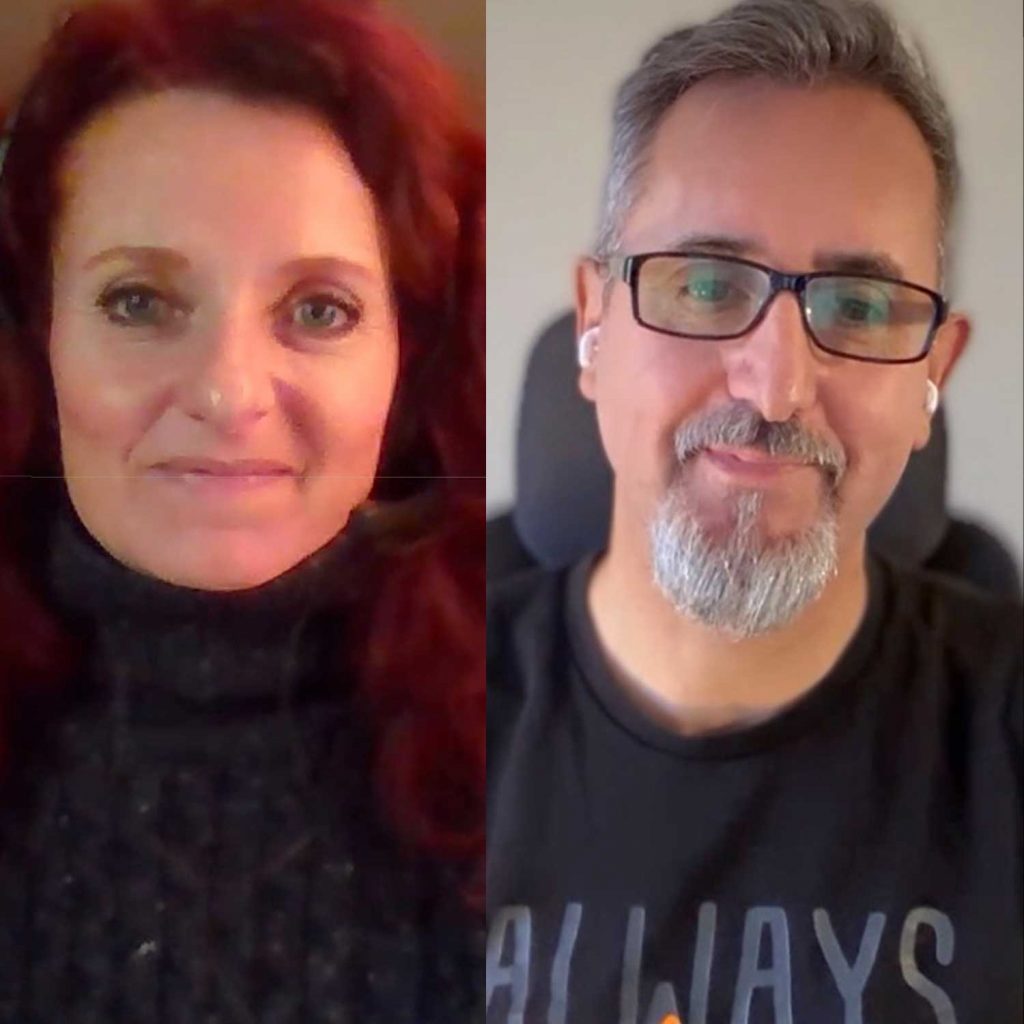
Martin shared his transition from running Moodle as CEO to following research interests in artificial intelligence and its potential for coaching from personal devices. We also learn what creatures live outside Martin’s door in Perth.
Next we learn from Paola of her entré into open education in 2015 with a project at Politecnico di Milano to create an early MOOC about Open Education Resources. This lead to her participation in the 2016 OE Global Conference in Krakow, how her unique approach to seeking advice from colleagues opened that window of opportunity with the open education community. Since then she has extended her energy into community building with open education librarians through SPARC Europe, including supporting the extraordinary resilience we heard about in Episode 51. Paola has large visions for what a global community can do, and you can sense how her favorite places to be outside inform that.
We hope these episodes give you sense of the people who provide the organizational direction for OE Global. These are the veew points of two more of these key people.
This Episode
FYI: This section of show notes alone was generated by AI Actions in the Descript editor we use to produce OEG Voices.
In Episode 64, we converse with Martin Dougiamas and Paola Corti, board members of Open Education Global. Through this discussion, we delve into the impact of artificial intelligence on open education, strategies towards user-friendly technical infrastructures, and the critical role of Open Education Global in advocating open education policies worldwide.
- AI in Open Education
- The Need for Seamless Technical Infrastructures
- Open Education Global’s Role
- Power of Librarians in Open Education
- Supportive Nature of Global Community
- Influence of Policy Making
- Personal Interests Outside Work
Podcast: Play in new window | Download
at Descript.com
Additional Links and Quotes for Episode 64
I’ve gotta talk about AI. It’s a bigger impact to our species than the internet was. I believe it’s going to be bigger than the internet. We needed the internet to connect things, but the amount of change to society will be larger. And that’s a big statement, I think, when you see how we all got used to the internet in a couple of short decades and it runs everything.
You really can’t exist in society without using the internet nearly on a daily basis. Yeah, I think this is larger and it really affects education because we’ve basically invented brains and built them out of sand and rock. Those brains are now directly involved and impacting our main activities, our purpose as well.
A lot of people find meaning in work and the activities that we do. Now we find machines can do those too. And we are automating, or at least on the precipice of automating or being able to automate nearly everything, which is quite a large, a large step.
I really see a lot of positives in it actually. And, I’m simultaneously worried by old school thinking and capitalist commercial approaches to things, turning this into another bad thing. But I also see a lot of positives. So that’s a big one. And I feel it like it needs a lot of work. What is open education in a future of AI?
Martin Dougiamas on Artificial Intelligence
- School of the Air (Wikipedia)
- Out of the Silent Air by C.S. Lewis (Wikipedia)
- Curtin University
- Dougiamas, M., & Taylor, P.C. (2002). Interpretive analysis of an internet-based course constructed using a new courseware tool called Moodle
- Moodle
- Virtual Reality
- Apple Vision Pro
- VFX1 Headgear (Wikipedia)
- Network of Open Organizations (OE Global)
- Maslow’s hierarchy of needs (Wikipedia)
- Toastmasters
- CU-SeeMe (Wikipedia)
- OE Global 2024 Conference in Brisbane
- Cybermind Conference 1996 (Internet Archive)
- Obsidian (note taking)
- “Exciting”, “Friendly”, Potential” (Martin’s three words describing what it’s like to be on the OE Global Board.
I had to counter that with, no, “this is a absolutely beautiful way to share information and learn.” The openness, I mean, it comes back to physics actually. To make a copy of an electronic thing costs zero.
There is no production cost after you’ve made the first copy of it. it’s electrons, it’s, you know, negligible. And so, it makes sense that once you have digital things, nature wants them to spread and be copied. It’s a natural thing to me that we do that. .
Martin Dougiamas on openness
there’s a huge global community available to support and answer questions when doubts arise, which happens very often. Every experience might be different from the previous one, but having the community available, reachable behind the scenes. Like in this case, you know, there is no distance. And everything happens very fast and people are ready to support. So that’s what I think it’s a big added value.
Having librarians in this, given their service approach and their helping attitude, well, this makes a difference.
Paola Corti on community
- Politecnico di Milano University (POLIMI)
- 2016 OE Global Conference in Krakow
- Setting the Default to Open (SPARC Europe)
- OEG Voices 051: Tetiana Kolesnykova on the Open Resilience of Librarians
- UNESCO Recommendation on Open Educational Resources (OER)
- Open Access in the Netherlands (open access.nl)
- OER-Strategie (Bundesministerium für Bildung und Forschung)
- Calm in the Storm (Chapter 11 from Higher Education for Good, co authored with Chrissi Nerantzi)
- “Curiosity”, “Critical Approach”, “Opportunities” (Paola’s three words about Artificial Intelligence)
If you want things happen, people in the room should have a voice and maybe that’s why I was elected as a member of the board, to have the practitioner’s perspective in the room. So I’m very happy to be there and to get to know more the staff members. that work in OE Global, because you see the result of their work, but you don’t have many opportunities to work close to them all the time.
Paola Corti on being on the OEGlobal Board
Our open licensed music for this episode is a track called RF Mountain Air by legacyAlli licensed under a Creative Commons Attribution-NonCommercial 4.0 International License. Like most of our intro music, it is from the Free Music Archive (see our full FMA playlist).
This was another episode we are recording on the web in Squadcast. This is part of the Descript platform for AI enabled transcribing and editing audio in text– this has greatly enhanced our ability to produce our shows We have been exploring some of the other AI features in Descript, but our posts remain human authored unless indicated otherwise.
